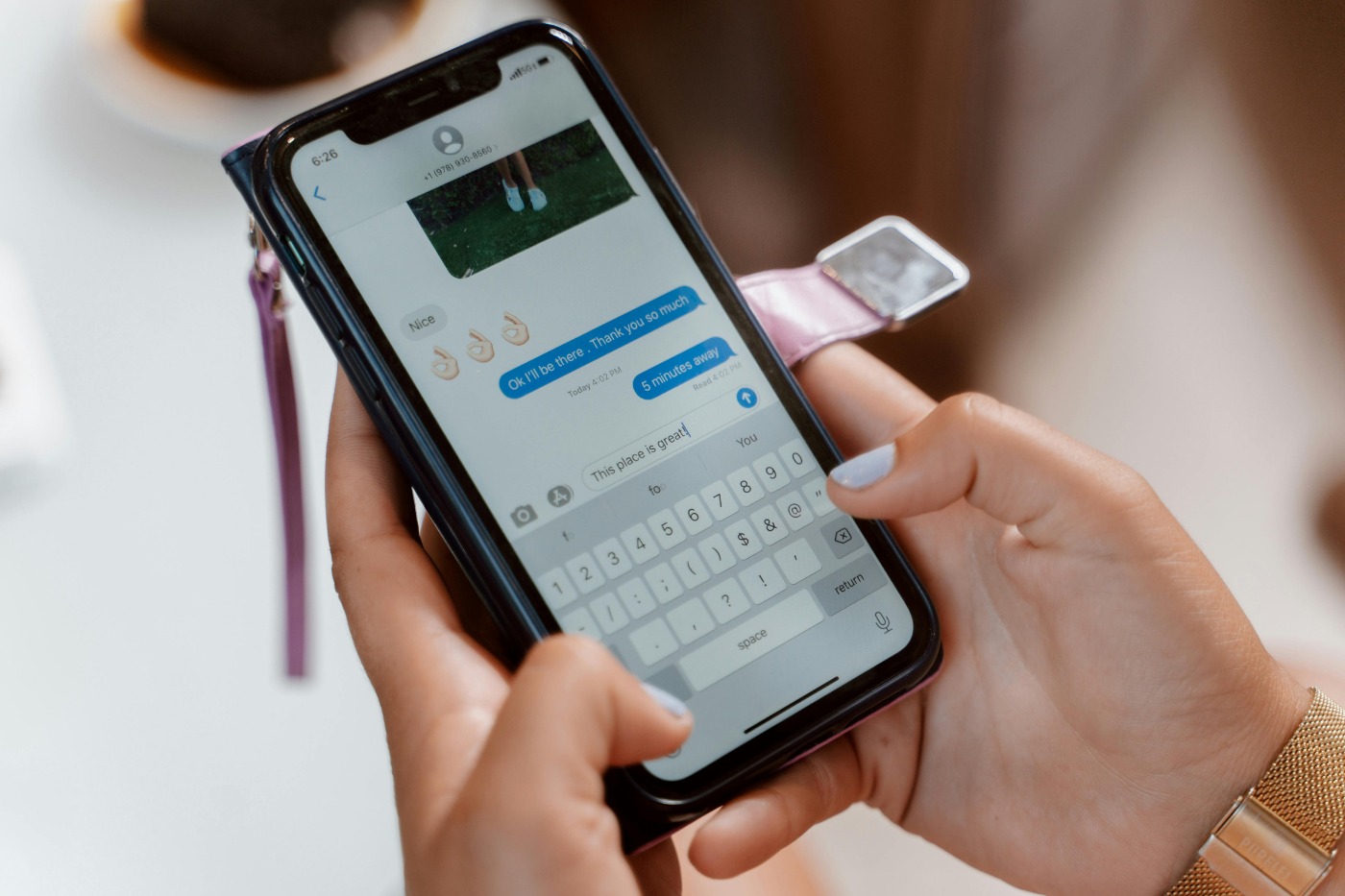Top RCS Messaging Benefits for Business in 2025

Introduction
In today's fast-paced digital world, businesses are constantly looking for more effective ways to connect with their customers. One of the most revolutionary advancements in this space is RCS Business Messaging. As traditional SMS continues to show its limitations, Rich Communication Services (RCS) has emerged as the future of mobile communication. In this article, we'll explore What is RCS messaging?, how it works, its benefits, security concerns, and why it's being hailed as the next evolution in business messaging.
What is RCS messaging?
RCS messaging is an abbreviation for Rich Communication Services, a communication protocol designed to replace SMS. It enhances the messaging experience with features like read receipts, typing indicators, high-res media sharing, carousels, suggested replies, and interactive buttons—all directly within the default messaging app. Think of it as bringing the power of a messaging app like WhatsApp or Messenger directly into your default texting app.
Why RCS Business Messaging Matters for Brands?
With increasingly more consumers spending time on their mobile phones, mobile messaging is the most immediate and intimate method of reaching users. RCS Business Messaging enables brands to send rich, interactive, and personalized experiences at scale, transforming the customer journey from awareness to post-purchase support.

RCS vs SMS: Why Businesses Are Switching?
The contrast between RCS vs SMS is like night and day. Whereas SMS has a limit of 160 characters and no multimedia support, RCS message supports branded content, images, videos, carousels, and clickable links—all within a native messaging app. That is, users do not need to download any third-party app to interact with the brand.
| Feature | SMS | RCS |
|---|---|---|
| Character Limit | 160 characters | Virtually unlimited |
| Multimedia Support | No | Yes (images, videos, GIFs) |
| Read Receipts | No | Yes |
| Typing Indicators | No | Yes |
| Branding Capabilities | No | Yes |
| Interactive Element | No | Yes (buttons, carousels) |
Understanding the Emergence of RCS chat
RCS chat refers to the consumer interface for RCS. It provides real-time messaging between people or between consumers and organizations. Users can be sent product suggestions, make appointments, follow packages, or even finalize transactions—all from within their messaging app using RCS chat.
How does an RCS text message function?
An RCS text message is transmitted over Wi-Fi or mobile data instead of using the classic SMS protocol. This offers additional features and real-time status updates. Companies can start an RCS message via a Messaging API or applications that offer Google RCS API support, embedding directly into the existing customer engagement platforms.
What is RCS text?
In brief, What is RCS text? It's the newer, better version of a traditional SMS—visually richer, more interactive, and much, much smarter. With Text message RCS, brands can broadcast appointment reminders with maps, boarding passes with QR codes, and offers with product carousels.

Top Use Cases for Text message RCS
Below are some practical examples of Text message RCS usage across different industries:
- Retail: Displaying new arrivals, product catalogs, and flash sales.
- Finance: Statements from banks, fraud notices, and credit report updates.
- Healthcare: Reminder for appointments, refills of prescriptions, and lab results.
- Travel & Hospitality: Confirmation of bookings, boarding passes, and hotel check-in reminders.
Device Compatibility: What About RCS message iPhone?
Presently, RCS message iPhone compatibility is restricted since Apple has not yet embraced the RCS messaging protocol in its entirety. Nonetheless, Google has been consistently urging Apple to integrate RCS, and recent news indicates that RCS support on iPhones may be imminent. This would be a huge milestone towards the convergence of the world's messaging ecosystem.
Benefits of RCS messaging for Businesses
The Benefits of RCS messaging extend well beyond ordinary texting. Here are some reasons why companies are adopting this technology:
1. Enhanced Engagement
Interactive elements such as carousels and buttons drive click-through and conversion rates.
2. Brand Identity
Companies can add their logos, colors, and verified sender names, building trust and recognition.
3. Two-way Conversations
Unlike SMS blasts, RCS messaging facilitates real-time conversation, enhancing customer satisfaction.
4. Better Analytics
Measure engagement metrics such as opens, reads, and clicks from the message interface itself.
5. No Need for Third-party Apps
All happens within the user's native messaging app, enhancing accessibility and reach.
Solving RCS messaging security concerns
As with any channel of communication, there are RCS messaging security issues to worry about. Though RCS messaging is more secure than SMS (since SMS is easy to spoof), it's not yet end-to-end encrypted by default. Google has been implementing encryption for one-on-one RCS conversations, but business messaging encryption is an emerging space.
In order to mitigate risks, companies should:
- Work with vetted RCS providers
- Comply with data privacy regulations (such as GDPR and CCPA)
- Use vetted sender IDs
- Implement additional security measures at the app and network level
Getting Started with Messaging API Integration
In order to implement RCS Business Messaging, businesses usually require a Messaging API that integrates RCS functionality into their CRM or customer engagement platform. Platforms such as Twilio, Sinch, and Infobip provide RCS messaging capabilities via straightforward API calls.
These APIs assist companies to send and receive RCS message types, track delivery and interaction status, and offer personalized user experiences in real-time.
The Google RCS API Role
The Google RCS API is also responsible for adopting RCS Business Messaging. Google's RCS platform, dubbed Jibe, offers end-to-end brands a solution for launching, controlling, and amplifying RCS campaigns across the globe. It maintains branding, security, delivery reporting, and individual conversation flows. Developers can apply the Google RCS API to build clever bots, streamline customer service, and develop rich campaign experiences driving higher ROI.

Future of RCS messaging in 2025 and beyond
As 2025 progresses, the worldwide buzz for Rich Communication Services grows stronger by the day. Industry analysts suggest that over 3.5 billion devices will be RCS-capable by the end of 2025. Carriers, tech giants, and brands alike are investing in the future of RCS chat.
Predictions:
- Apple is likely to support RCS message iPhone at last, finishing the global launch.
- Even more industries such as education and government will implement RCS messaging.
- New functionalities such as payments, chatbot integrations, and end-to-end encryption will become the norm.
Conclusion
RCS Business Messaging is not an advancement of SMS—it's a revolutionary change in how brands communicate with customers. With its robust features, personalization capabilities, and fluid user experience, "Rich Communication Services" is revolutionizing the future of mobile communication.
Whether you're a startup or a corporation, embracing RCS messaging today puts you ahead of the competition. With technologies such as Messaging API and Google RCS API, it's now simpler than ever to send interactive and engaging conversations.
So the next time you wonder, What is text message RCS?, keep in mind—it's more than a text message. It's the future of business communication.